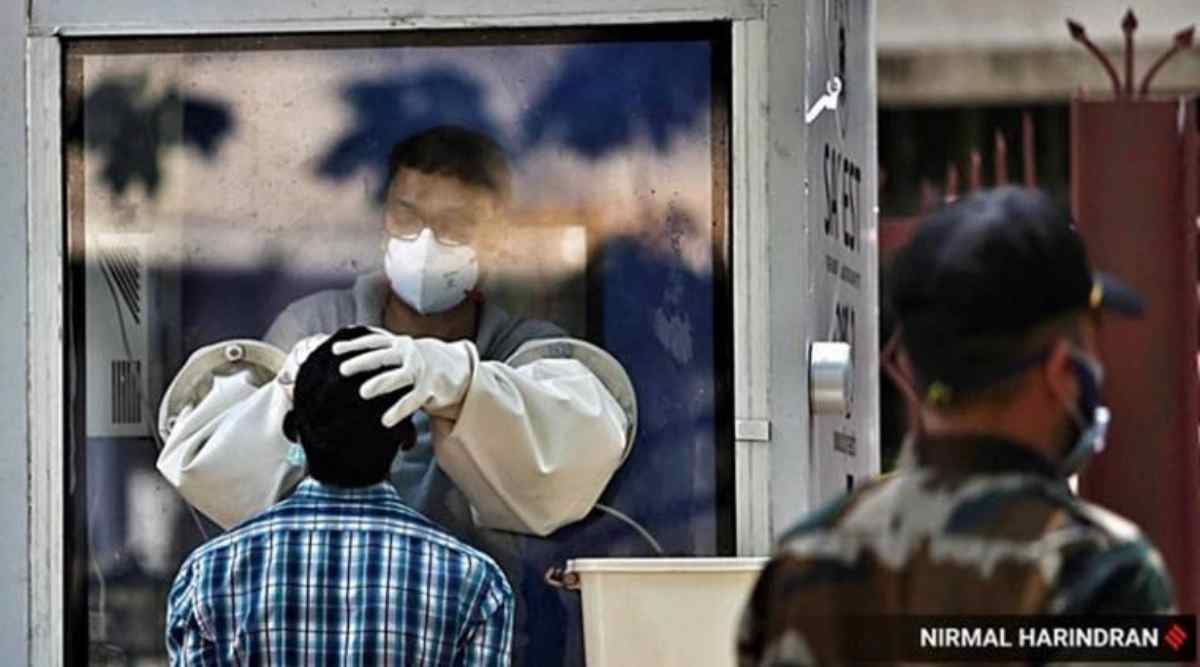Daily Covid-19 cases in Maharashtra drop over 7 days
Between April 10 and 16, the state recorded 5,582 Covid-19 cases, which slightly dropped to 5,550 in the next seven days between April 17 and 23. However, the number of new infections dropped by 32 per cent to 3,771 between April 24 and 30, according to an analysis of the data by The Indian Express.
 Although the new strain—Omicron variant XBB.1.16 has raised concern about a spike in cases, epidemiologists believe that with acquired herd immunity, India would not witness the pandemic worsening. (File)
Although the new strain—Omicron variant XBB.1.16 has raised concern about a spike in cases, epidemiologists believe that with acquired herd immunity, India would not witness the pandemic worsening. (File) After recording a gradual upward spiral, the curve of daily cases of Covid-19 has been flattening over the past seven days when positivity rate also dropped from 6.3 per cent to 4.3 per cent, as per data by the state health department.
However, although the new strain—Omicron variant XBB.1.16 has raised concern about a spike in cases, epidemiologists believe that with acquired herd immunity, India would not witness the pandemic worsening.
In a statement released on Sunday, the public health department stated that cases dropped despite conducting an average of 14,500 tests per day. “The measures taken by the government have helped to curb the spike in cases and death rate that dropped from from 0.36 per cent to 0.26 per cent in the same time period,” read the statement.
However, although the new strain—Omicron variant XBB.1.16 has raised concern about a spike in cases, epidemiologists believe that with acquired herd immunity, India would not witness the pandemic worsening.
“During seasonal changes, viruses such as coronavirus become more active… The same is for other infections such as influenza, swine flu, etc… So, this sudden rise in cases can’t be tagged as a spike but a blip,” said former state surveillance officer Dr Pradip Awate.
Dr Subhash Salunkhe, chairman of the new Covid-19 task force, said that although the cases surged, hospitalisation was below two per cent. “Despite the sudden rise in cases, the state didn’t record daily case load of above 2,000. Districts such as Raigad and Thane also recorded a jump in cases but nothing of concern,” he said.
The state task force has advised to improve daily testing for early detection of Covid cases. Genome sequencing is also enhanced to understand the molecular characterisation of the predominant variants of SARS-CoV-2.
“We are also in talks with the Serum Institute of India (SII) to make more efficient vaccines for the vulnerable population as they are more prone to contracting the virus and related fatalities,” said Dr Salunke.







